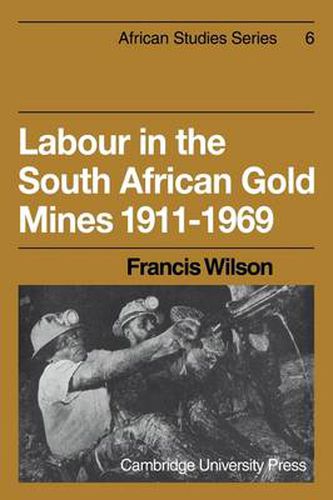Readings Newsletter
Become a Readings Member to make your shopping experience even easier.
Sign in or sign up for free!
You’re not far away from qualifying for FREE standard shipping within Australia
You’ve qualified for FREE standard shipping within Australia
The cart is loading…






The main theme of this 1972 book, the determination of wages, is introduced by a historical analysis of the labour market in the mines and an examination of the economics and financial structure of the gold mining industry. Dr Wilson believes that successive South African governments used the gold mining industry when planning labour policies, so that the mines’ labour strategy exerted a profound influence on the social and economic structure of South Africa. The author shows how collusion between the mining groups enabled them to hold down black wages so effectively that in real terms African miners’ wages were likely lower at the time of this book’s publication than they were in 1911. The strong bargaining position occupied by white miners allowed them to be the sole beneficiaries of increases in productivity, so that the distribution of income would become more unequal over time.
$9.00 standard shipping within Australia
FREE standard shipping within Australia for orders over $100.00
Express & International shipping calculated at checkout
The main theme of this 1972 book, the determination of wages, is introduced by a historical analysis of the labour market in the mines and an examination of the economics and financial structure of the gold mining industry. Dr Wilson believes that successive South African governments used the gold mining industry when planning labour policies, so that the mines’ labour strategy exerted a profound influence on the social and economic structure of South Africa. The author shows how collusion between the mining groups enabled them to hold down black wages so effectively that in real terms African miners’ wages were likely lower at the time of this book’s publication than they were in 1911. The strong bargaining position occupied by white miners allowed them to be the sole beneficiaries of increases in productivity, so that the distribution of income would become more unequal over time.